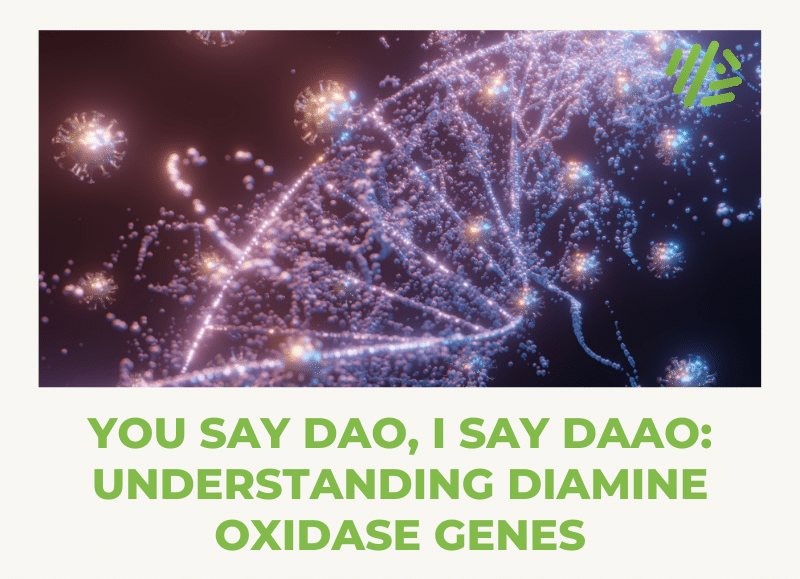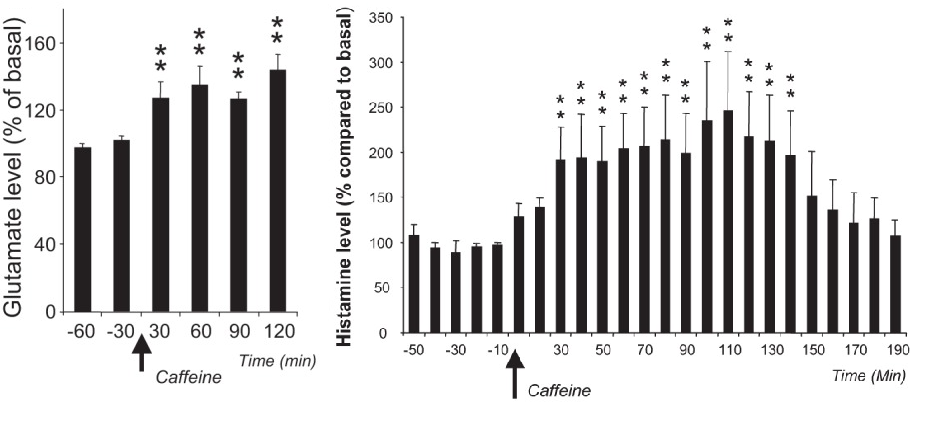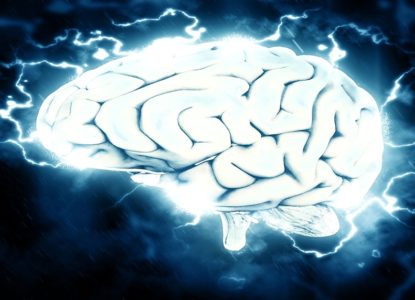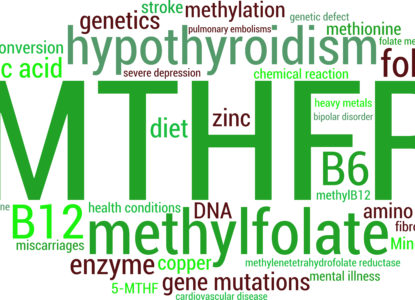You say DAO, I say DAAO: Understanding Diamine Oxidase Genes

DAO is not the same as DAO.
Written down that doesn’t look like it makes a lot of sense, but let me work through it and you’ll soon join the dots, and then see where the confusion comes from.The difference between DAO and DAO
When written down, genes are typically italicized. So picking one that I’m particularly interested in; CFTR or the cystic fibrosis transmembrane conductance regulator, both refer to the gene. Whereas, CFTR or cystic fibrosis transmembrane conductance regulator both refer to the protein. In this instance it’s easy, the gene and the protein have the same name, so we can differentiate them just based on whether one is italicized or not. However not all genes and proteins share the same acronym, and this is where the problems around AOC1/DAO and DAO/DAAO arise.| Gene | Protein | Long Name |
|---|---|---|
| AOC1 | DAO | Di-amine oxidase |
| DAO | DAAO | D-amino acid oxidase |
Daughter has pyroluria and 61% unbound copper. Whole blood histamine indicates overmethylator. She’s homozygous DAO RS3741775. (R)In the above quote a reader of a blog discussing histamine and mast cell disorders has raised DAO (the protein) and rs3741775 as a SNP ID, which is actually found in the DAO gene. If you then investigate this SNP further and look at the associated livewello page you can find much further discussion around the point, and even several platforms for sale which analyse SNPs in the DAO gene as a means of assessing histamine imbalance. From a thorough review of the scientific literature available I am not aware of any studies which show such an association, although as always I’m happy to be corrected.
Are glutamate and histamine linked at all?
Reading through all this material piqued my interest about whether glutamate and histamine could be linked at all. Glutamate is a key neurotransmitter which we discuss in a previous post which plays a major role in learning, memory and sleep regulation (R). In that same post we discuss how glutamate binds with its receptor GRIA3 to promote wakefulness (R). Whereas, the most investigated function of histamine is during the bodies immune response to infection where it stimulates a variety of pathways to fight infection such as vasodilation (which in the skin can cause flushing) and activation of mucus membranes in the nose and eyes (R). If you have allergies, those symptoms no doubt sound familiar, and the chances are that your allergic reactions are driven by improper histamine release following exposure to pollen, dust mites, animal hair or whatever it is that triggers your allergy. However, histamine also plays a role in regulating wakefulness by stimulating neurons in the brain. It is for this reason that older antihistamines, given for allergy, often induced a feeling of sleepyness or fogginess after taking them (R). Newer antihistamines have mainly eliminated this effect (R), but it was an excellent mechanism to identify just how important histamine is in the brain in promoting wakefulness. So both glutamate and histamine act to promote wakefulness, does the link go any further? Well there is some evidence to suggest that glutamate in the brain is a driver of histamine release. Two studies both performed in rats (R, R) demonstrate that glutamate release can promote the secretion of histamine in the brain. The second study takes things further and shows that caffeine stimulates the release of glutamate, which in turn causes the brain to release histamine and it is this reaction that promotes a portion of the wakefulness associated with caffeine (the other major pathway being through ADA and ADORA2A adenosine signalling) Image adapted from John et al. Caffeine promotes glutamate and histamine release in the posterior hypothalamus. Am J Physiol Regul Integr Comp Physiol. 2014 (R). The left panel shows that glutamate levels in the rat brain are increased 30 minutes following caffeine intake. The right panel shows the same effect for histamine. For histamine 2 and a half hours after caffeine intake the significant difference from baseline was lost, does 2 and half hours sound about right for your coffee buzz?
It does look like there might be some link between glutamate and histamine in relation to regulation of sleep. However, what the researchers don’t show is any effect the other way, with no evidence that glutamate induced histamine release occurs anywhere else in the body, or has any effect on allergy severity or duration.
Image adapted from John et al. Caffeine promotes glutamate and histamine release in the posterior hypothalamus. Am J Physiol Regul Integr Comp Physiol. 2014 (R). The left panel shows that glutamate levels in the rat brain are increased 30 minutes following caffeine intake. The right panel shows the same effect for histamine. For histamine 2 and a half hours after caffeine intake the significant difference from baseline was lost, does 2 and half hours sound about right for your coffee buzz?
It does look like there might be some link between glutamate and histamine in relation to regulation of sleep. However, what the researchers don’t show is any effect the other way, with no evidence that glutamate induced histamine release occurs anywhere else in the body, or has any effect on allergy severity or duration.



